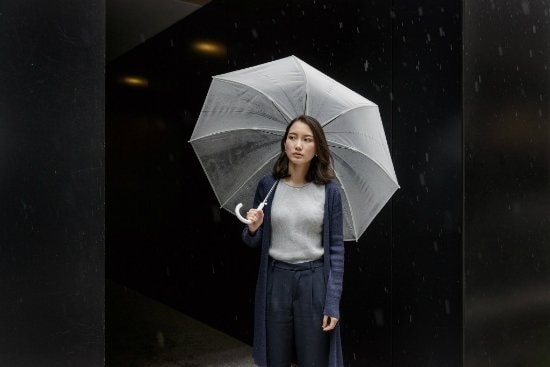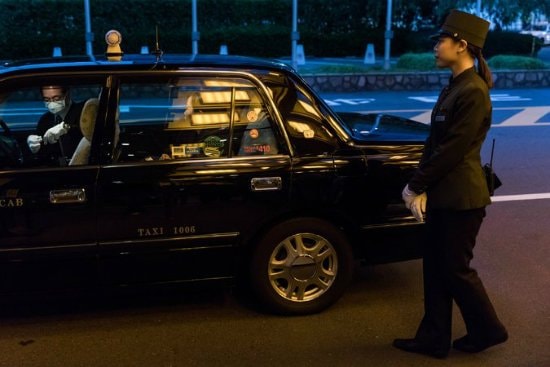Japanese Girl's Dark Friday Night
Shiori Ito was sexually abused by a journalist and director of a media unit. Unlike other women in Japan, she did not stay silent. She published a book to fight for justice for what she had gone through.
|
| Shiori Ito - a woman sexually abused by a journalist who was also the Director of the Tokyo Broadcasting Bureau. |
It was a spring day, Friday night, when a famous journalist in Japan invited Shiori, a student intern, out for a few drinks. Shiori's internship at a media unit in Tokyo had ended and now she had to find a new job based on her acquaintance with that man.
They met at a bar in central Tokyo for dinner. Shiori Ito told police the last thing she remembered was feeling dizzy and going to the bathroom by herself, then passing out from being so drunk.
That night, Shiori Ito said that the man took her to a hotel and raped her while she was unconscious from alcohol. The man, Yamaguchi, a journalist and then director of the Tokyo Broadcasting Bureau, denied the allegation. After two months of investigation, prosecutors dropped the case.
Then, Shiori Ito decided to do something most Japanese women dare not do: Speak up.
At a press conference last May and in Ito's new book published in October 2017, she said police captured hotel security camera footage showing Mr. Yamaguchi helping her walk down the hall to her hotel room.
Police also arranged and interviewed the taxi driver who drove them, and he confirmed that she was completely drunk at the time. Investigators said they would arrest Mr. Yamaguchi, but then suddenly turned their backs.
|
Cover of Shiori Ito's book about sexual abuse. |
Not by chance
Ms. Ito had met Mr. Yamaguchi a few times while she was studying journalism in New York before their chance encounter on April 3, 2015. When she returned to Tokyo and contacted him, he told Ito he could help her find a job in his office. He then invited her out for drinks and dinner at a sushi restaurant.
Ito was surprised that it was just the two of them at dinner, and they drank a lot of beer and sake. Shiori Ito said that after a while she felt a little tipsy, her head was throbbing, she went to the bathroom and passed out from being so drunk. When she woke up the next morning, she found herself in bed with Mr. Yamaguchi.
Japanese law calls this “quasi-rape” – a forced act when the woman is unconscious and unable to resist.
Police then contacted the taxi driver who took Ms. Ito and Mr. Yamaguchi to the Sheraton Miyako Hotel, where Mr. Yamaguchi was staying. The driver said that Ms. Ito was initially conscious and told him to take her to the subway station. However, Mr. Yamaguchi asked him to take them to the hotel.
|
| The taxi driver took Ms. Ito and Mr. Yamaguchi to the hotel, even though she had previously asked to be taken to the subway station. |
Explaining what had happened, Mr. Yamaguchi said that he had to return to the hotel that evening to take care of some work and he felt guilty for not taking Ms. Ito home. “It would have been improper to leave her alone at the subway station or in the hotel lobby,” Mr. Yamaguchi explained.
He declined to describe what happened next. The allegations that he raped Ms. Ito were settled by his lawyer.
Shame and hesitation
After leaving the hotel, Ito immediately went home to take a shower. But now, she regrets her actions. She confided: “I should have gone straight to the police station.”
Ito’s hesitation is typical of most cases of sexual assault in Japan. “Many Japanese women who have been assaulted blame themselves, thinking it was all their fault,” said Tamie Kaino, professor emeritus at Ochanomizu University.
According to Hisako Tanabe, a rape counselor at the Violence Support Center in Tokyo, women who call the hotline often refuse advice to go to the police because they do not think the police will believe them.
Ito also felt embarrassed and intended to keep quiet. But in the end, she decided to report the incident to the police five days after the incident.
She insisted: “If I don't dare to face the truth, perhaps I don't deserve to be a journalist.”
The officers at the station initially discouraged Ito from filing a complaint and were skeptical of her story, believing that Mr. Yamaguchi’s status would also prevent her from pursuing a lawsuit. But they realized the seriousness of the case after she showed them the hotel’s security footage.
After two months of investigation, a detective informed Ito, now working on a project in Berlin, that they were about to arrest Yamaguchi based on evidence from the taxi driver's testimony, hotel security video and a test report that found Yamaguchi's DNA on her bra.
The detective said Mr. Yamaguchi would be arrested on June 8, 2015, at the airport immediately after he returned to Tokyo from Washington. She was also asked to return to Japan to assist in the questioning.
According to Ito, on that day, the investigator called her back saying they were at the airport but a superior had ordered not to execute the arrest warrant.
Ms. Ito declined to reveal the investigator’s identity because she wanted to protect him. Tokyo police did not comment on whether Mr. Yamaguchi had been arrested.
"We have conducted a necessary investigation, complied with all legal regulations and submitted all documents and evidence to the Tokyo prosecutor's office," a Tokyo police spokesman said.
|
| The Sheraton Miyako Hotel where Mr. Yamaguchi took Ms. Ito on the night she got drunk. |
“I have to be strong”
Last summer, Japan’s parliament passed the first changes to sex crime laws in 110 years, broadening the definition of rape to include oral and anal sex, and allowing men to be victims. Lawmakers also increased maximum penalties. But the law still does not address consent, and judges can still suspend sentences.
The allegations have not affected Mr. Yamaguchi's position at Tokyo Broadcasting System. But after writing a controversial article last year, he resigned under pressure from netizens. He continues to work as a freelance reporter in Tokyo.
Ito published a book about his experiences in October 2016, but it received only modest attention from mainstream Japanese media.
Ito spoke about her views and why she was brave enough to speak out: “The press never talks much about sexual assault. I still feel I need to be strong and continue to tell people why it is not okay.”





